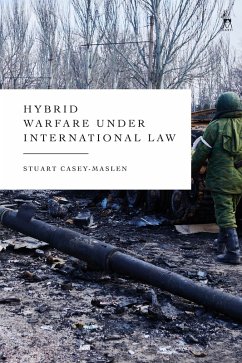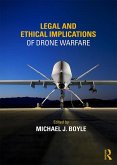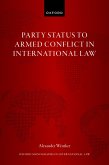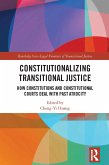This book addresses the regulation of hybrid warfare under relevant branches of international law, beginning with the law on inter-state use of force (jus ad bellum).
Firstly, the book assesses the extent to which forms of hybrid warfare comply with or violate international humanitarian law/the law of armed conflict. It then looks at law enforcement action in response to hybrid warfare, both on land and on the high seas, and addresses hybrid warfare from the perspective of international counterterrorism law. It goes on to tackle the constraints applied to hybrid warfare under international human rights law, and looks at how hybrid warfare could be constrained under disarmament law. The final two chapters look at accountability for the conduct of hybrid warfare, concluding with the question: can we move towards a less fragmented set of international legal rules that will govern hybrid warfare in the future?
Firstly, the book assesses the extent to which forms of hybrid warfare comply with or violate international humanitarian law/the law of armed conflict. It then looks at law enforcement action in response to hybrid warfare, both on land and on the high seas, and addresses hybrid warfare from the perspective of international counterterrorism law. It goes on to tackle the constraints applied to hybrid warfare under international human rights law, and looks at how hybrid warfare could be constrained under disarmament law. The final two chapters look at accountability for the conduct of hybrid warfare, concluding with the question: can we move towards a less fragmented set of international legal rules that will govern hybrid warfare in the future?









